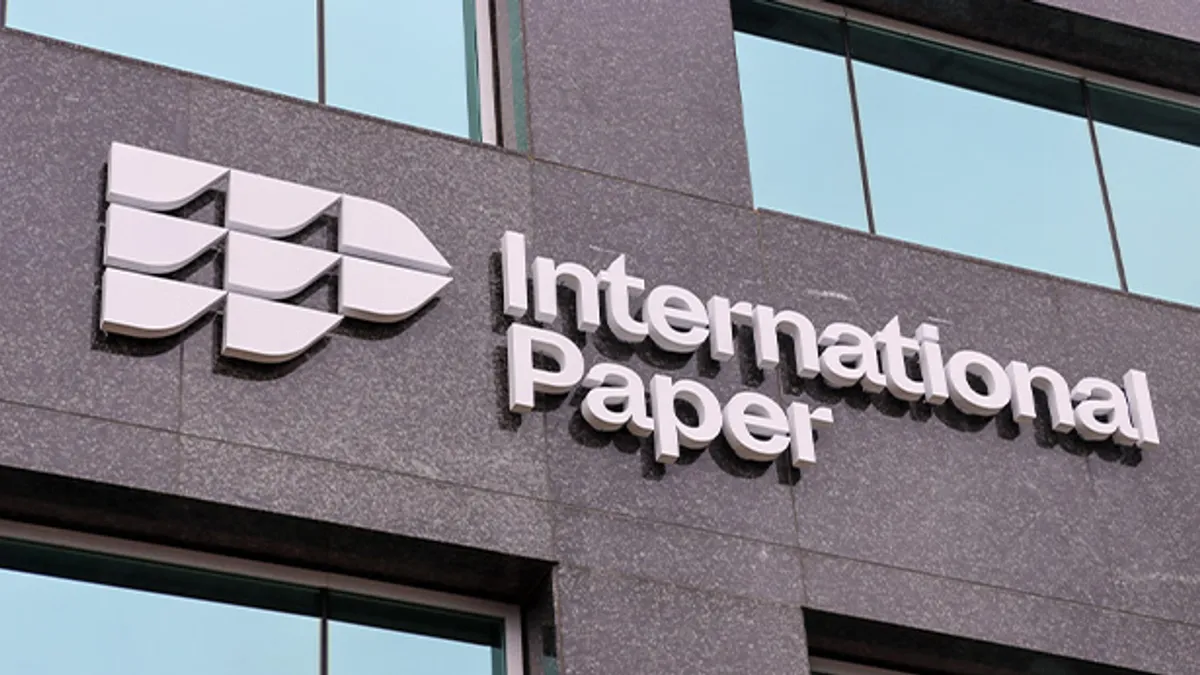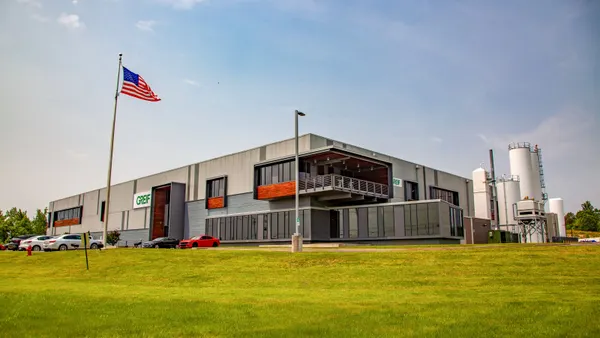Dive Brief:
- International Paper announced Wednesday it plans to close five sites in Germany as part of its integration with DS Smith, the London-based packaging company it acquired in January for an estimated $7.2 billion. The manufacturing sites included are a conventional box plant, a display and offset site, and three sheet plants; another display site also will partially close.
- IP expects roughly 500 roles to be affected by the closures, which it anticipates will occur by the end of 2026. IP is engaging with labor representatives, the news release says, and until that activity progresses it will not comment further about the scope of closures or potential impact on employees.
- The closures are part of IP’s “transformational journey to become a stronger sustainable packaging solutions company” via an optimization plan. It launched the streamlining stateside last year prior to the DS Smith acquisition and in Europe this year following the deal finalization.
Dive Insight:
International Paper has been closing various U.S.-based locations as part of the optimization plan that CEO Andy Silvernail launched last year shortly after he joined the company. IP cut approximately 3,600 employees between October 2024 and August of this year; the total included four recent closure announcements in Georgia.
In May, International Paper confirmed that it planned to close five U.K. packaging sites and by year’s end and implement changes at others, affecting approximately 300 roles. Silvernail has said throughout 2025 that a leading goal following the DS Smith deal is to implement the 80/20 plan and optimization efforts in the newly acquired international markets. During an investor event in September, he explained the aim to remove $500 million to $600 million of costs in Europe. During the company’s third-quarter earnings call on Oct. 30, Silvernail confirmed that IP is “going to move aggressively toward rightsizing Europe.”
“Europe, in total, from a cash flow basis, is using cash,” he said on the call. “So we do have to restructure that.”
However, Silvernail explained during both events that streamlining takes more work in Europe than in the United States due to the region’s regulations. European regulators require a “consultation process” to explore alternatives to closures, whereas the U.S. model allows companies to simply execute announced actions.
Compliance with the consultation process is why IP has been so tight-lipped about its footprint and workforce reduction strategy for Europe, Silvernail explained.
“We're working hand-in-hand with the works councils and with the regulators to go through that process in a very detailed way,” he said on the earnings call. “I appreciate the fact that we all want to put a number out there and put a date out there and talk about what's going to happen. ... That being said, it has to be in conjunction with the regulations and the laws and the practices in Europe.
Executives discussed during the earnings call other elements of the DS Smith integration and that overall it hasn’t gone entirely to plan.
“While we have significantly improved our strategic positioning and competitive strength, market softness and negative price movements have made the start to the DS Smith acquisition challenging,” said CFO Lance Loeffler. “That said, we have an aggressive road map to improve profitability, invest in our strategic pillars and position the business for long-term success.”
He described soft demand in Europe specifically, and noted that the “challenged macroenvironment” is prompting IP to “accelerate our cost-out initiatives. This quarter, we've proposed several closures across East Europe, the Nordics and Italy, which are all subject to consultation.”
That builds on IP’s proposal during the previous quarter to remove layers in the European region and consolidate from 13 to seven subregions. The consultation on that reorganization “is progressing, with an anticipated financial benefit occurring in 2026,” Loeffler said.













